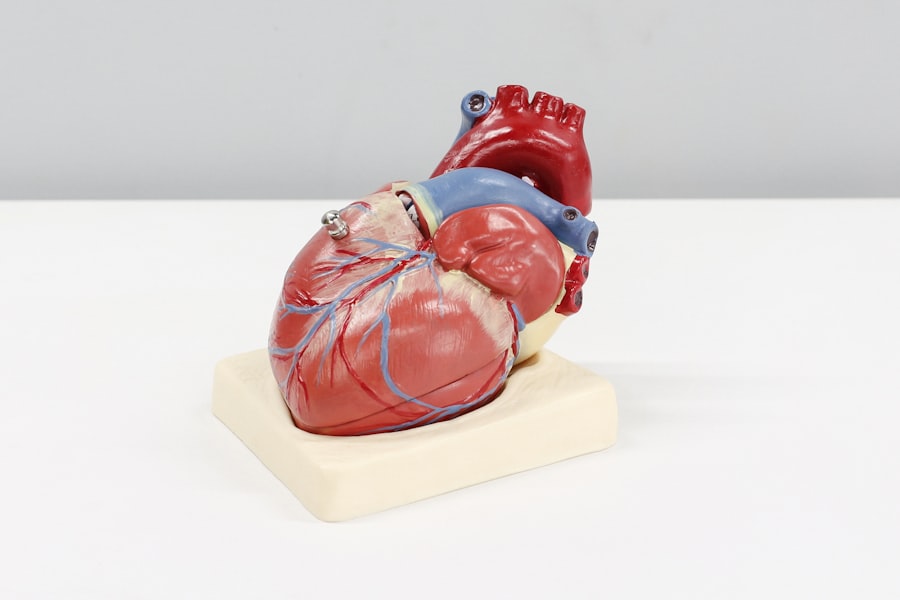The integration of artificial intelligence (AI) into the medical field has ushered in a transformative era, revolutionizing how healthcare professionals diagnose and treat patients. With the ability to analyze vast amounts of data at unprecedented speeds, AI systems are enhancing the accuracy of medical diagnoses and personalizing treatment plans. This technological advancement is not merely a trend; it represents a fundamental shift in the healthcare landscape, promising improved patient outcomes and more efficient healthcare delivery.
As computer enthusiasts, we are witnessing a remarkable convergence of technology and medicine. The application of AI in healthcare is multifaceted, encompassing everything from disease detection to drug discovery. By harnessing machine learning algorithms and deep learning techniques, AI systems can identify patterns in medical data that may elude even the most experienced clinicians.
This capability not only streamlines the diagnostic process but also empowers healthcare providers to make informed decisions based on comprehensive data analysis. As we delve deeper into the various applications of AI in medical diagnosis and treatment, it becomes evident that this technology is poised to redefine the future of healthcare.
Key Takeaways
- AI is revolutionizing medical diagnosis and treatment by providing advanced tools for disease detection, personalized treatment plans, drug discovery, surgical procedures, predictive analytics, and prognosis.
- AI systems are being used in disease detection and diagnosis to analyze medical images, genetic data, and patient records to identify patterns and make accurate predictions.
- AI systems are creating personalized treatment plans by analyzing patient data and medical literature to recommend the most effective treatment options based on individual characteristics.
- AI systems are accelerating drug discovery and development by analyzing large datasets to identify potential drug candidates and predict their efficacy and safety.
- AI systems are enhancing surgical procedures and robotics by providing real-time guidance, precision, and automation to improve surgical outcomes and patient recovery.
AI Systems in Disease Detection and Diagnosis
Advancements in Disease Detection and Diagnosis
Artificial intelligence (AI) systems have made significant strides in disease detection and diagnosis, particularly in areas such as radiology, pathology, and dermatology. Machine learning algorithms can analyze medical images with remarkable precision, identifying anomalies that may indicate the presence of diseases such as cancer or cardiovascular conditions.
Enhanced Diagnostic Capabilities
For instance, AI-powered imaging tools can detect tumors in mammograms or lung nodules in CT scans, often outperforming human radiologists in terms of accuracy and speed. This capability not only enhances early detection but also reduces the burden on healthcare professionals, allowing them to focus on more complex cases.
Streamlining Diagnostic Workflows
Moreover, AI systems are increasingly being utilized in pathology, where they assist pathologists in analyzing tissue samples. By employing deep learning techniques, these systems can classify cells and tissues with high accuracy, helping to identify malignancies and other pathological conditions. The integration of AI into diagnostic workflows not only improves diagnostic accuracy but also expedites the process, enabling timely interventions that can significantly impact patient outcomes.
A Proactive Approach to Healthcare
As these technologies continue to evolve, we can expect even greater advancements in disease detection and diagnosis, ultimately leading to a more proactive approach to healthcare.
AI Systems in Personalized Treatment Plans

The concept of personalized medicine has gained traction in recent years, and AI is playing a pivotal role in its realization. By analyzing a patient’s genetic makeup, lifestyle factors, and medical history, AI systems can generate tailored treatment plans that cater to individual needs. This approach moves away from the traditional one-size-fits-all model, allowing healthcare providers to deliver more effective therapies based on a patient’s unique characteristics.
AI algorithms can sift through extensive datasets to identify correlations between specific genetic markers and treatment responses. For example, in oncology, AI can help determine which patients are likely to benefit from targeted therapies based on their tumor’s genetic profile. This level of personalization not only enhances treatment efficacy but also minimizes adverse effects by avoiding ineffective therapies.
As AI continues to refine its capabilities in analyzing complex biological data, we can anticipate a future where personalized treatment plans become the standard rather than the exception.
AI Systems in Drug Discovery and Development
The drug discovery process has traditionally been lengthy and costly, often taking years or even decades to bring a new medication to market. However, AI is revolutionizing this landscape by streamlining various stages of drug development. From identifying potential drug candidates to predicting their efficacy and safety profiles, AI systems are accelerating the pace of innovation in pharmaceuticals.
One of the most promising applications of AI in drug discovery is its ability to analyze vast chemical libraries and predict which compounds are likely to interact with specific biological targets. Machine learning algorithms can identify patterns within chemical structures and biological data, enabling researchers to prioritize candidates for further testing.
As a result, pharmaceutical companies are increasingly turning to AI-driven methodologies to enhance their drug discovery pipelines and bring life-saving medications to patients more rapidly.
AI Systems in Surgical Procedures and Robotics
The advent of AI has also made significant inroads into surgical procedures and robotics, enhancing precision and safety during operations. Robotic surgical systems equipped with AI capabilities allow surgeons to perform complex procedures with greater accuracy than ever before.
AI-powered robotic systems can assist in minimally invasive surgeries by offering enhanced visualization and dexterity. For instance, robotic arms equipped with advanced sensors can execute intricate movements with millimeter precision, minimizing damage to surrounding tissues. Furthermore, AI algorithms can analyze surgical outcomes and provide feedback for continuous improvement, ensuring that surgical techniques evolve based on empirical evidence.
As technology continues to advance, we can expect even more sophisticated robotic systems that will redefine the standards of surgical care.
AI Systems in Predictive Analytics and Prognosis

Revolutionizing Patient Risk Assessment with AI-Powered Predictive Analytics
Predictive analytics powered by artificial intelligence is revolutionizing the way healthcare providers assess patient risk and prognosis. By analyzing historical patient data alongside real-time information, AI systems can identify individuals at high risk for developing certain conditions or experiencing adverse events. This proactive approach enables healthcare professionals to implement preventive measures and tailor interventions accordingly.
Early Detection and Prevention of Chronic Diseases
For example, AI algorithms can analyze electronic health records (EHRs) to identify patterns associated with chronic diseases such as diabetes or heart disease. By flagging patients who exhibit risk factors early on, healthcare providers can initiate lifestyle modifications or preventive treatments that may mitigate disease progression.
Optimizing Hospital Resource Management with Predictive Analytics
Additionally, predictive analytics can enhance hospital resource management by forecasting patient admissions and optimizing staffing levels based on anticipated demand. This enables healthcare providers to allocate resources more efficiently, reducing the risk of overcrowding and improving overall patient care.
The Future of Predictive Analytics in Healthcare
As predictive models become more sophisticated, they will play an increasingly vital role in shaping healthcare strategies and improving overall patient care. With the ability to analyze vast amounts of data and identify complex patterns, AI-powered predictive analytics is poised to transform the healthcare industry and improve patient outcomes.
Ethical and Legal Implications of AI in Medicine
While the benefits of AI in medicine are substantial, they also raise important ethical and legal considerations that must be addressed. The use of AI systems in healthcare introduces questions about data privacy, informed consent, and accountability for clinical decisions made by algorithms. As these technologies become more integrated into clinical practice, it is essential to establish clear guidelines that protect patient rights while fostering innovation.
Data privacy is a paramount concern when it comes to utilizing patient information for training AI models. Ensuring that sensitive health data is handled securely and ethically is crucial for maintaining patient trust. Additionally, as AI systems take on more decision-making roles in diagnosis and treatment, questions arise regarding liability when errors occur.
Determining whether responsibility lies with the healthcare provider or the technology itself is a complex issue that requires careful consideration. As we navigate this evolving landscape, it is imperative for stakeholders—including policymakers, healthcare providers, and technologists—to collaborate on establishing ethical frameworks that guide the responsible use of AI in medicine.
Future Outlook and Challenges in AI Medical Revolution
Looking ahead, the future of AI in medicine holds immense promise but also presents several challenges that must be addressed for successful implementation. As technology continues to advance at a rapid pace, ensuring that healthcare professionals are adequately trained to work alongside AI systems will be essential. This includes not only technical training but also fostering an understanding of how to interpret AI-generated insights within the context of patient care.
Moreover, as AI becomes more prevalent in clinical settings, ongoing research will be necessary to validate the effectiveness of these technologies across diverse populations and medical conditions. Ensuring that AI systems are equitable and do not perpetuate existing biases is critical for achieving fair healthcare outcomes for all patients. Additionally, regulatory frameworks will need to evolve alongside technological advancements to ensure safety and efficacy while promoting innovation.
In conclusion, the integration of AI into medical diagnosis and treatment represents a paradigm shift that has the potential to enhance patient care significantly. From disease detection to personalized treatment plans and drug discovery, AI systems are reshaping how healthcare is delivered. However, as we embrace these advancements, it is crucial to navigate the ethical implications and challenges that accompany this technological revolution thoughtfully.
The future of medicine will undoubtedly be influenced by AI’s capabilities; thus, fostering collaboration among stakeholders will be key to realizing its full potential while safeguarding patient welfare.
In the rapidly evolving landscape of healthcare, the integration of artificial intelligence (AI) is proving to be a game-changer in medical diagnosis and treatment. A related article that explores the intersection of emerging technologies and their impact on various sectors, including healthcare, is titled “Future Trends and Innovations in the Metaverse: Emerging Technologies Shaping the Metaverse.” This article delves into how advancements in technology, such as AI, are not only transforming the metaverse but also enhancing medical practices and patient care. For more insights, you can read the article [here](https://metaversum.it/future-trends-and-innovations-in-the-metaverse-emerging-technologies-shaping-the-metaverse/).
FAQs
What is AI in the context of medical diagnosis and treatment?
AI, or artificial intelligence, refers to the use of computer algorithms and machine learning to perform tasks that typically require human intelligence. In the context of medical diagnosis and treatment, AI systems can analyze medical data, interpret images, and assist healthcare professionals in making more accurate and efficient decisions.
How are AI systems revolutionizing medical diagnosis?
AI systems are revolutionizing medical diagnosis by analyzing large amounts of patient data to identify patterns and trends that may not be immediately apparent to human healthcare professionals. This can lead to earlier and more accurate diagnoses, as well as the identification of potential treatment options.
What role do AI systems play in medical treatment?
AI systems can assist in medical treatment by analyzing patient data to personalize treatment plans, predicting potential outcomes, and identifying the most effective interventions. Additionally, AI systems can help healthcare professionals monitor patient progress and adjust treatment plans as needed.
What are the benefits of using AI systems in medical diagnosis and treatment?
The use of AI systems in medical diagnosis and treatment can lead to more accurate and timely diagnoses, personalized treatment plans, improved patient outcomes, and more efficient use of healthcare resources. Additionally, AI systems can help healthcare professionals stay up-to-date with the latest medical research and best practices.
What are some examples of AI systems used in medical diagnosis and treatment?
Examples of AI systems used in medical diagnosis and treatment include machine learning algorithms that analyze medical imaging data, natural language processing tools that extract information from patient records, and predictive analytics models that help identify patients at risk for certain conditions.











Leave a Reply